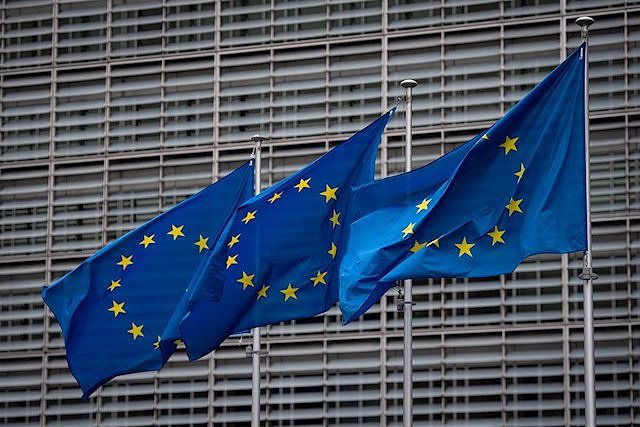BRUSSELS, 26 Apr. (EUROPE PRESS) -
The European Commission has presented this Wednesday its proposal to review the fiscal rules, which contemplates a path of spending subject to the debt by country, but with a minimum annual adjustment of the deficit of 0.5% of GDP for the years in which The negative general government imbalance is expected to exceed the 3% benchmark, a common parameter that has been introduced at the request of countries such as Germany.
In addition, it will be the governments of each Member State that will have to present their own medium-term fiscal adjustment plans based on a reduction in the "plausible" spending path that allows debt to be maintained at "prudent" levels over a period of time. period of four years, although it may be extended to a maximum of seven if it is supported by reforms and specific investments.
For its part, the Commission will provide technical trajectories showing what fiscal adjustment is necessary to ensure that the criteria of the 3% and 60% reference values are met, but it will be the 27 who will have to support the structural plans presented by each country , as well as the reform and investment commitments on which the extensions are based.
As highlighted at a press conference by the Commission's economic vice-president, Valdis Dombrovskis, this approach responds to a "balanced approach designed around key areas to guarantee transparency and equal treatment" which, in addition, "allows debt to be reduced while encouraging investment and reform.
"Our proposals simplify our rules and focus on fiscal challenges. This means taking into account the different initial budgetary situations of the Member States and their different challenges in terms of public debt", explained, for his part, the European Commissioner for Economy, Paolo Gentiloni, who has stressed that, by focusing on spending, "the typical procyclical bias that fiscal policy has had in recent years" is also avoided.
The proposal also maintains some of the obligations of the current discipline, such as the Excessive Deficit Procedure (EDP), which continues at a maximum of 3%, while the one based on debt, which is activated when a Member State reaches a debt of more than 60% of GDP, it will be reinforced.
Likewise, the revision introduces a specific escape clause for Member States that contemplates the possibility of extraordinary events, such as pandemics or wars, derived from the context after the pandemic and the crisis caused by Russia's attack on Ukraine.
However, while the proposals provide Member States with greater control over the design of their medium-term plans, they also set out a stricter implementation regime to ensure that they meet the commitments they make in their medium-term plans.
In the case of Member States facing significant challenges in terms of public debt, deviations from the agreed fiscal adjustment path will lead by default to the opening of an excessive deficit procedure.
If reform and investment commitments justifying an extension of the budget adjustment period are not met, the adjustment period could be extended, but failure to meet reform and investment commitments justifying an extension of the budget adjustment period could result in reducing this period.
The objective of Brussels is to conclude the legislative work this year to begin preparations throughout 2024, with the development of national debt reduction plans so that they cover the period from 2025.

 Exploring Cardano: Inner Workings and Advantages of this Cryptocurrency
Exploring Cardano: Inner Workings and Advantages of this Cryptocurrency Seville.- Economy.- Innova.- STSA inaugurates its new painting and sealing hangar in San Pablo, for 18 million
Seville.- Economy.- Innova.- STSA inaugurates its new painting and sealing hangar in San Pablo, for 18 million Innova.- More than 300 volunteers join the Andalucía Compromiso Digital network in one month to facilitate access to ICT
Innova.- More than 300 volunteers join the Andalucía Compromiso Digital network in one month to facilitate access to ICT Innova.-AMP.- Ayesa acquires 51% of Sadiel, which will create new technological engineering products and expand markets
Innova.-AMP.- Ayesa acquires 51% of Sadiel, which will create new technological engineering products and expand markets The Community will provide facilities and support to the Bullfighting Prize with the help of the Toro de Lidia Foundation
The Community will provide facilities and support to the Bullfighting Prize with the help of the Toro de Lidia Foundation Page will contact the bullfighting sector to create, from C-LM, Bullfighting Awards that will have national reach
Page will contact the bullfighting sector to create, from C-LM, Bullfighting Awards that will have national reach Urtasun, on eliminating the National Bullfighting Award: "The majority of Spaniards support the decision I have made"
Urtasun, on eliminating the National Bullfighting Award: "The majority of Spaniards support the decision I have made" Alfonso Guerra sees Sánchez in an "autocratic" drift and accuses him of generating division "between the two Spains"
Alfonso Guerra sees Sánchez in an "autocratic" drift and accuses him of generating division "between the two Spains" How Blockchain in being used to shape the future
How Blockchain in being used to shape the future Not just BTC and ETH: Here Are Some More Interesting Coins Worth Focusing on
Not just BTC and ETH: Here Are Some More Interesting Coins Worth Focusing on The Generalitat calls for aid worth 4 million to promote innovation projects in municipalities
The Generalitat calls for aid worth 4 million to promote innovation projects in municipalities UPV students design an app that helps improve the ventilation of homes in the face of high temperatures
UPV students design an app that helps improve the ventilation of homes in the face of high temperatures Ivace and promotes a less invasive device for the early detection of prostate cancer
Ivace and promotes a less invasive device for the early detection of prostate cancer Valencia unanimously approves the ordinance to allocate spaces to test innovative initiatives
Valencia unanimously approves the ordinance to allocate spaces to test innovative initiatives A million people demonstrate in France against Macron's pension reform
A million people demonstrate in France against Macron's pension reform Russia launches several missiles against "critical infrastructure" in the city of Zaporizhia
Russia launches several missiles against "critical infrastructure" in the city of Zaporizhia A "procession" remembers the dead of the Calabria shipwreck as bodies continue to wash up on the shore
A "procession" remembers the dead of the Calabria shipwreck as bodies continue to wash up on the shore Prison sentences handed down for three prominent Hong Kong pro-democracy activists
Prison sentences handed down for three prominent Hong Kong pro-democracy activists ETH continues to leave trading platforms, Ethereum balance on exchanges lowest in 3 years
ETH continues to leave trading platforms, Ethereum balance on exchanges lowest in 3 years Investors invest $450 million in Consensys, Ethereum incubator now valued at $7 billion
Investors invest $450 million in Consensys, Ethereum incubator now valued at $7 billion Alchemy Integrates Ethereum L2 Product Starknet to Enhance Web3 Scalability at a Price 100x Lower Than L1 Fees
Alchemy Integrates Ethereum L2 Product Starknet to Enhance Web3 Scalability at a Price 100x Lower Than L1 Fees Mining Report: Bitcoin's Electricity Consumption Declines by 25% in Q1 2022
Mining Report: Bitcoin's Electricity Consumption Declines by 25% in Q1 2022 Oil-to-Bitcoin Mining Firm Crusoe Energy Systems Raised $505 Million
Oil-to-Bitcoin Mining Firm Crusoe Energy Systems Raised $505 Million Microbt reveals the latest Bitcoin mining rigs -- Machines produce up to 126 TH/s with custom 5nm chip design
Microbt reveals the latest Bitcoin mining rigs -- Machines produce up to 126 TH/s with custom 5nm chip design Bitcoin's Mining Difficulty Hits a Lifetime High, With More Than 90% of BTC Supply Issued
Bitcoin's Mining Difficulty Hits a Lifetime High, With More Than 90% of BTC Supply Issued The Biggest Movers are Near, EOS, and RUNE during Friday's Selloff
The Biggest Movers are Near, EOS, and RUNE during Friday's Selloff Global Markets Spooked by a Hawkish Fed and Covid, Stocks and Crypto Gain After Musk Buys Twitter
Global Markets Spooked by a Hawkish Fed and Covid, Stocks and Crypto Gain After Musk Buys Twitter Bitso to offset carbon emissions from the Trading Platform's ERC20, ETH, and BTC Transactions
Bitso to offset carbon emissions from the Trading Platform's ERC20, ETH, and BTC Transactions Draftkings Announces 2022 College Hoops NFT Selection for March Madness
Draftkings Announces 2022 College Hoops NFT Selection for March Madness























